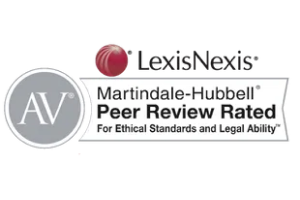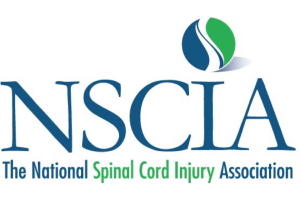Types of Foodborne Illnesses
There Are Many Types of Foodborne Illnesses
Which Can Have Serious Health Consequences
There are dozens of different bacteria, viruses, parasites and other pathogens which can contaminate raw or improperly prepared food thereby leading to human infection and the transmission of various foodborne diseases. However, the CDC estimates that about 90% of all foodborne illness in this country is caused by the following seven (7) pathogens: Norovirus, Salmonella, Clostridium perfrigens, Campylobacter, Listeria, E. coli 0157:H7 and Toxoplasma. While most people recover from food poisoning within a few days, every year nearly 130,000 Americans suffer a serious foodborne illnesses which requires hospitalization. In some cases, the foodborne disease proves fatal or leads to long term health consequences. The following are the most significant foodborne illnesses based upon frequency of occurrence and/or severity of potential adverse health consequences:
- Salmonellosis – a potentially life threatening infectious disease caused by various species of Salmonella bacteria. This infection can cause a debilitating condition referred to as Reactive Arthritis (“Reiter’s Syndrome”).
- Hemorrhagic Colitis – infectious disease primarily caused by the bacterium Escherichia coli O157:H7. E. coli infection can lead to a serious complication known as Hemolytic Uremic Syndrome (HUS).
- Listeriosis – infectious disease caused by the bacterium Listeria monocytogenes. This infection is particularly dangerous for pregnant women because it can cause stillbirth, premature labor and/or infection of the baby.
- Campylobacteriosis – infectious disease caused by the bacterium Campylobacter jejuni. This infection can lead to a serious disorder affecting the peripheral nervous system known as Guillain – Barre Syndrome.
- Shigellosis (bacillary dysentery) – infectious disease caused by various species of Shigella bacteria. This infection can also cause HUS or Reactive Arthritis.
- Perfringens Poisoning – enteric disease caused by the bacterium Colostridium perfrigens.
- Foodborne Botulism – life threatening disease caused by consumption of foods containing neurotoxins produced by the bacterium Colostridium botulinum.
- Norovirus Gastroenteritis – highly contagious disease caused by the Norwalk virus family. This viral infection can sometimes result in a chronic functional gastrointestinal disorder known as Post Infectious Irritable Bowel Syndrome.
- Acute Viral Hepatitis A – infectious disease of the liver caused by the Hepatitis A virus (HAV).
- Toxoplasmosis – infectious disease caused by a microscopic parasite called Toxoplasma gondii. In pregnant women, this infection can be transmitted and harmful to the fetus.
It is estimated that more than half of all foodborne illnesses are caused by some type of viral pathogen, while about one-third are caused by various species of bacteria. Parasites are responsible for a relatively small percentage (<5%) of foodborne illnesses in this country. Hepatitis A and Norovirus are highly contagious infectious diseases caused by viral pathogens. E. coli food poisoning, Salmonellis, Listeriosis, Campylobacteriosis and Shigellosis are communicable infectious diseases caused by different bacterial pathogens. Toxins produced by different species of bacteria in the Clostridium family cause Botulism and Perfringens poisoning which, unlike the other aforementioned illnesses, are not spread via person-to-person transmission from an infected individual to another previously non-infected individual. Toxoplasmosis is an infectious disease caused by a parasite. All of the pathogens which cause these illnesses – except Listeria, Hepatitis A and Toxoplasma – first attack the intestines causing acute gastrointestinal illness which may or may not lead to other illnesses or complications. Listeria, Hepatitis A and Toxoplasma infections generally cause various types of non-gastrointestinal illnesses. Listeria and Toxoplasma infections are unique in that they can be transmitted by an infected pregnant woman to her unborn child.
Some types of foodborne illness caused by bacteria can be treated with antibiotics with varying effectiveness. However, in certain types of bacterial food poisoning, antibiotics may be contraindicated. For example, the CDC recommends that E. coli infections not be treated with antibiotics because of a concern that they may increase the risk of Hemolytic Uremic Syndrome. Antibiotics are also not recommended for treatment of Perfringens poisoning. There is no “cure” for the viral infections, and they cannot be treated with antibiotics. However, acute viral Hepatitis A can be prevented with proper immunization. Unfortunately, Hepatitis A is the only one of these foodborne illnesses for which there currently is a vaccine.
The Most Dangerous Pathogens Causing Foodborne Illness
The most often occurring foodborne illnesses are Noroviruses, Salmonellosis, Perfringens poisoning and Campylobacteriosis, in that order. Fortunately, all of these foodborne illnesses, except Salmonellosis, have a very low mortality rate and incidence of serious complications; Salmonellosis results in significant morbidity. Indeed, Salmonella is the leading cause of death among all known foodborne pathogens. In addition to Salmonella, the foodborne pathogens of greatest concern include Toxoplasma gondii, Listeria monocytogenes, Norovirus, Campylobacter jejuni and E. coli (STEC) 0157. According to the CDC, these six pathogens are to blame for more than 90% of all food poisoning deaths in the United States. Moreover, E. coli O157:H7 and Salmonella deserve particular attention because these pathogens are responsible for many of the most notorious food poisoning outbreaks which have taken place in the last two decades. Listeria and Toxoplasma pathogens are especially concerning for pregnant women because of their ability to infect both mother and fetus, and cause miscarriages, stillbirths or other complications during pregnancy.
The Potential Complications of Foodborne Illnesses
and Persons at Highest Risk of Suffering Them
Fortunately, the majority of food poisoning episodes resolve within a week and without significant adverse health consequences. However, the risk of death, hospitalization and debilitating medical conditions is present with any foodborne illness, especially among certain groups of people considered most at risk. The categories of persons known to be at higher risk of contracting a foodborne illness and/or suffering death or serious medical complications therefrom include the following:
- Infants and young children
- Pregnant women (and their unborn fetus)
- Elderly adults over the age of 65
- Persons with a weakened or compromised immune system
- Cancer patients especially those undergoing chemotherapy or radiation treatments
- Persons who are HIV positive or suffering AIDS
- Persons with a certain chronic conditions such as diabetes, liver disease or kidney failure
- Persons who have sickle cell anemia or other disorders affecting red blood cells
- Transplant recipients especially while taking medications to reduce the risk of rejection
- Persons taking antibiotics, antihistamines or steroid medications
food poisoning can be fatal, although the mortality rate in this country is very low. Death occurs in less than 1 out of every 10,000 cases of food poisoning. However, even with this low incident rate, the number of deaths is significant because the number of food poisoning episodes is so high (about 48 million cases are believed to occur annually). The U.S. food poisoning death toll is currently estimated by the CDC to be 3,000 per year, although some experts believe the annual number of deaths due to foodborne illness could be significantly higher. According to the USDA Economic Research Service, “foodborne illnesses account for about 1 of every 100 U.S. hospitalizations and for 1 of every 500 U.S. deaths.” In cases of foodborne illness, the causes of death are varied but frequently include septicemia (which occurs after a bacterial infection has invaded the blood stream) and/or failure of one or more organs due to metastatic infection or some other disease process. For pregnant women, their unborn child is also at risk. Some foodborne illnesses (primarily Listeriosis and Toxoplasmosis) can cause spontaneous abortion and stillbirth of the fetus.
The potential health implications of a nonfatal foodborne illness are often under appreciated. According to the latest estimates released by the CDC in 2011, nearly 130,000 food poisoning victims require hospitalization in this country every year. Many of these patients face a wide array of potential complications with some having profound long term health consequences. Depending upon the type of foodborne illness involved, the list of known food poisoning complications includes diabetes, kidney dysfunction, urinary tract infections, renal induced hypertension, pernicious anaemia, hemorrhagic adrenalitis, partial paralysis, meningitis, encephalitis, brain damage, cognitive impairment, autoimmune disorders, glaucoma, vision impairment, endocarditis, pericarditis, lactose intolerance, gastroesophageal disease (GERD), dyspepsia, gastroparesis, and pseudomemdraneous colitis.
The Four Most Prevalent Food Poisoning Complications
Of particular note, the four most concerning and frequently cited medical conditions resulting from foodborne illnesses are as follows:
- Hemolytic Uremic Syndrome – a serious disease that occurs when an enteric bacterial infection leads to the production of toxins that enter the bloodstream and cause destruction of red blood cells. This can lead to further complications including hemolytic anemia, thrombocytopenia (blood platelet deficiency), uremia, pancreatitis, neurological dysfunction, seizures, acute respiratory distress syndrome (ARDS), renal damage and acute kidney failure. Children are at especially high risk for HUS. Most persons suffering HUS require hospitalization of signification duration. Most eventually recover but about one-third of patients suffer permanent sequellae, and the U.S. fatality rate is 3-5%. Most cases of HUS are associated with E. coli food poisoning, but this complication can also occur in cases of Shigelliosis.
- Guillain-Barre Syndrome (GBS) – a serious disorder of the peripheral nervous system caused by the body’s autoimmune response to the presence of foreign pathogens. Among other things, GBS can lead to varying degrees of neuromuscular paralysis. Campylobacter is the primary cause of GBS.
- Reactive Arthritis (also called “Reiter’s Syndrome”) – a potentially debilitating disorder resulting from the body’s autoimmune release of antigens to attack bacteria which have entered the bloodstream following a gastrointestinal infection. This process can cause joint inflammation and various other arthritic like conditions. This complication is known to occur in cases of food poisoning caused by Salmonella, Campylobacter, E. coli and Shigella.
- Post-Infectious Irritable Bowel Syndrome (IBS) – a potentially chronic and long-term functional gastrointestinal disorder characterized by various symptoms (which can occur daily or at irregular intervals) such as bloating, abdominal pain, diarrhea and constipation. This condition can be caused or exacerbated by severe gastrointestinal infections which occur after food poisoning. Foodborne illnesses caused by E. coli 0157:H7, Salmonella, Shigella, Campylobacter and Norovirus are known to be associated with IBS.
Obtain Legal Advice About Food Poisoning or Food Allergy Reactions
From a Georgia Food Safety Litigation Attorney
The Atlanta trial attorneys at Ragland Law Firm, LLC have expertise in the litigation of cases involving issues of food poisoning, adulterated food, foreign object injury and allergic food reactions. Learn more about their Food Safety Case Results. They are capable of pursuing a personal injury or wrongful death lawsuit in Georgia, Alabama, Florida, Tennessee, South Carolina and other southeastern states on behalf of persons who have suffered E. coli, Salmonella, Listeria, Shigella, Camplylobacter, Norovirus or other infections transmitted by contaminated or negligently prepared food, water or beverage products. We invite you to contact us if you or a family member has been the victim of food poisoning and desire legal advice from an Atlanta trial lawyer who specializes in food safety litigation.









